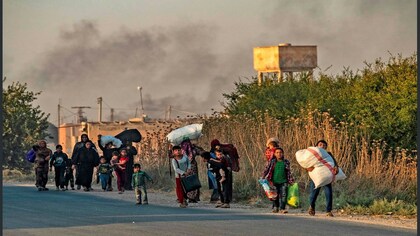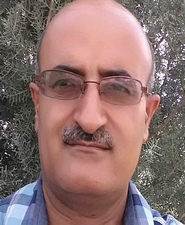Ahmadinejad's Latin American Tour Highlights Iran's Isolation
20:28 - 25 January 2012

Iranian President Mahmoud Ahmadinejad’s four-country Latin American tour last week was noticeable for its lack of achievements. The trip again underscored the gap between Tehran’s global ambitions and its constrained capabilities. Iran has yet to establish the means to challenge core U.S. economic, security and other interests in Latin America, and there is little likelihood of that changing in the future.
In recent years, Iran has sought to expand its economic ties as well as diplomatic partnerships and influence in Latin America. Thus far, however, Iran has only managed to develop close ties with a few regional governments that share ideological affinity with the current Iranian regime, seek its economic assistance and are eager to find extra-regional balances to the United States. The Iranian charm offensive’s disappointing return on investment reflects the fact that Iran has little to offer most Latin American countries.
It is true that Tehran’s presence in South America, especially, has increased noticeably since Ahmadinejad took office in 2005. Iran’s trade with several South American countries has grown significantly in that time. Meanwhile, several regional leaders have endorsed Iran’s self-proclaimed nuclear ambitions, and Tehran has opened six embassies in the region.
But while Iran has some business partners in Latin America, it has few allies. In fact, Iran has developed good ties with only the four countries Ahmadinejad just visited: Venezuela, Nicaragua, Cuba and Ecuador. The problem is that these four countries have little to offer Tehran. Their ties are primarily economic and diplomatic, not military. They also lack a positive cooperation agenda, with their friendship mainly determined by what they oppose.
More important than the four countries Ahmadinejad visited on this, his fifth trip as president to Latin America, are the reasons behind his lukewarm reception elsewhere.
Iran’s failure to develop closer ties with many Latin American countries is in part due to the fact that Tehran has developed a reputation in the Western Hemisphere for welching on its promises. Few if any of the lavish gifts Ahmadinejad has promised in the past have materialized, and many of the commercial deals with Latin American states that Iran has announced with great fanfare -- such as Iran’s 2007 pledge to spend hundreds of millions of dollars constructing a seaport for Nicaragua at Monkey Point -- were never implemented.
If Venezuelan President Hugo Chávez has become Iran’s most important ally in South America, it is because both he and Ahmadinejad are eager to decrease Washington’s global influence. They also share the same anti-imperialist rhetoric and outlook. Most importantly, Chavez has acted as a “marriage broker” for Ahmadinejad, introducing him to other Latin American leaders with a similar outlook toward Washington. These include the current populist governments of Bolivia, Ecuador and Nicaragua, all of whose leaders work closely with Chavez and have strained ties with the United States.
These leaders have all strongly defended Iran’s nuclear program as peaceful and legitimate, and they have opposed U.S. and European sanctions on Tehran for its nuclear activities. Though the U.S. government has sanctioned some of these countries’ companies for dealing with Iran, as well as Iranian firms that have established subsidiaries there, they have all expanded their economic cooperation with Iran in recent years, especially in natural resource sectors. It is possible that Venezuela might supply Iran with gasoline to help it circumvent recently enacted U.S. sanctions.
Nonetheless, despite the close diplomatic ties, Venezuela only ranks as Iran’s fifth-largest trade partner in Latin America, probably because the two countries have little to offer each other in the economic domain. The other three countries lag even further behind in terms of their trade with Iran.
Cuba’s global influence has waned during the past decades, leaving Chavez as the axis holding the anti-U.S. spokes of the wheel together in Latin America. But Chavez’s influence in the region has already begun to wane and could decline even further if his health problems worsen. And as his influence declines, so too will Tehran’s.
Even now, however, Tehran’s ties with the most important South American countries are marginal and often strained. Although Iran’s economic relations with Argentina have grown considerably, these have not yielded diplomatic improvements. Argentinians still hold Iran responsible for Hezbollah’s terrorist attacks in Argentina in 1992, when the Lebanese group bombed the Israeli Embassy, and in 1994, when it attacked a Jewish community center in Buenos Aires. Argentina has been an outspoken critic of Iran’s nuclear program and endorsed using U.N. sanctions to impede it.
Iran’s relations with Brazil have declined sharply since President Dilma Rousseff took office, replacing former President Lula da Silva. Lula had enjoyed playing global statesman and cultivating good ties with Ahmadinejad and other prominent world leaders. During 2010, his last year in office, Brazil was serving the first of a two-year rotating term on the U.N. Security Council, and its delegation joined with Turkey in opposing additional U.N. sanctions on Iran. The two countries also sought to mediate the dispute between Iran and the five permanent members of the Council over Tehran’s uranium enrichment efforts.
In contrast, Rousseff has shunned Ahmadinejad and attacked his government’s human rights record. Her government does support further dialogue aimed at achieving a peaceful resolution to the dispute over Iran’s nuclear program, but Brazilian diplomats have adopted a lower profile regarding the issue.
Brazil remains Iran’s most important economic partner in South America. But since Brazil does not need Iran’s oil or gas, and Iran has little else to sell, the trade relationship is inherently limited and highly imbalanced in Brazil’s favor.
Furthermore, Ahmadinejad is not popular in Brazil. His November 2009 visit saw thousands of protesters in the streets denouncing his human rights record and his position on Israel. He wisely chose to skip Brazil on his current trip.
Iran’s relations with Colombia are also strained due to Tehran’s ties to Venezuela. Unlike many South American countries, the government of Colombia opposes Iran for ideological reasons related to Tehran’s support for foreign terrorist movements. Columbian authorities arrested people in 2001 and 2008 who they suspected had ties to Hezbollah.
Despite years of lobbying, Iran’s diplomatic and economic ties with Mexico are also surprisingly weak. For all its efforts, Iran has neither secured Mexican support for its nuclear policies nor made inroads into the Mexican economy. Recent U.S. claims that an Iranian operative had tried to hire a Mexican hit man to assassinate the Saudi Arabian ambassador to the United States have added yet another barrier to closer Iranian-Mexican ties.
Tehran lacks the economic, diplomatic, military and soft power resources to project much power in a region that is physically and culturally very distant. Given this unfavorable environment, Iran’s influence is unlikely to expand much further or present a plausible threat to core U.S. economic and security interests in Latin America anytime soon.
Richard Weitz is a senior fellow at the Hudson Institute and a World Politics Review senior editor. His weekly WPR column, Global Insights, appears every Tuesday.
Source – WPR
BY : RICHARD WEITZ
In recent years, Iran has sought to expand its economic ties as well as diplomatic partnerships and influence in Latin America. Thus far, however, Iran has only managed to develop close ties with a few regional governments that share ideological affinity with the current Iranian regime, seek its economic assistance and are eager to find extra-regional balances to the United States. The Iranian charm offensive’s disappointing return on investment reflects the fact that Iran has little to offer most Latin American countries.
It is true that Tehran’s presence in South America, especially, has increased noticeably since Ahmadinejad took office in 2005. Iran’s trade with several South American countries has grown significantly in that time. Meanwhile, several regional leaders have endorsed Iran’s self-proclaimed nuclear ambitions, and Tehran has opened six embassies in the region.
But while Iran has some business partners in Latin America, it has few allies. In fact, Iran has developed good ties with only the four countries Ahmadinejad just visited: Venezuela, Nicaragua, Cuba and Ecuador. The problem is that these four countries have little to offer Tehran. Their ties are primarily economic and diplomatic, not military. They also lack a positive cooperation agenda, with their friendship mainly determined by what they oppose.
More important than the four countries Ahmadinejad visited on this, his fifth trip as president to Latin America, are the reasons behind his lukewarm reception elsewhere.
Iran’s failure to develop closer ties with many Latin American countries is in part due to the fact that Tehran has developed a reputation in the Western Hemisphere for welching on its promises. Few if any of the lavish gifts Ahmadinejad has promised in the past have materialized, and many of the commercial deals with Latin American states that Iran has announced with great fanfare -- such as Iran’s 2007 pledge to spend hundreds of millions of dollars constructing a seaport for Nicaragua at Monkey Point -- were never implemented.
If Venezuelan President Hugo Chávez has become Iran’s most important ally in South America, it is because both he and Ahmadinejad are eager to decrease Washington’s global influence. They also share the same anti-imperialist rhetoric and outlook. Most importantly, Chavez has acted as a “marriage broker” for Ahmadinejad, introducing him to other Latin American leaders with a similar outlook toward Washington. These include the current populist governments of Bolivia, Ecuador and Nicaragua, all of whose leaders work closely with Chavez and have strained ties with the United States.
These leaders have all strongly defended Iran’s nuclear program as peaceful and legitimate, and they have opposed U.S. and European sanctions on Tehran for its nuclear activities. Though the U.S. government has sanctioned some of these countries’ companies for dealing with Iran, as well as Iranian firms that have established subsidiaries there, they have all expanded their economic cooperation with Iran in recent years, especially in natural resource sectors. It is possible that Venezuela might supply Iran with gasoline to help it circumvent recently enacted U.S. sanctions.
Nonetheless, despite the close diplomatic ties, Venezuela only ranks as Iran’s fifth-largest trade partner in Latin America, probably because the two countries have little to offer each other in the economic domain. The other three countries lag even further behind in terms of their trade with Iran.
Cuba’s global influence has waned during the past decades, leaving Chavez as the axis holding the anti-U.S. spokes of the wheel together in Latin America. But Chavez’s influence in the region has already begun to wane and could decline even further if his health problems worsen. And as his influence declines, so too will Tehran’s.
Even now, however, Tehran’s ties with the most important South American countries are marginal and often strained. Although Iran’s economic relations with Argentina have grown considerably, these have not yielded diplomatic improvements. Argentinians still hold Iran responsible for Hezbollah’s terrorist attacks in Argentina in 1992, when the Lebanese group bombed the Israeli Embassy, and in 1994, when it attacked a Jewish community center in Buenos Aires. Argentina has been an outspoken critic of Iran’s nuclear program and endorsed using U.N. sanctions to impede it.
Iran’s relations with Brazil have declined sharply since President Dilma Rousseff took office, replacing former President Lula da Silva. Lula had enjoyed playing global statesman and cultivating good ties with Ahmadinejad and other prominent world leaders. During 2010, his last year in office, Brazil was serving the first of a two-year rotating term on the U.N. Security Council, and its delegation joined with Turkey in opposing additional U.N. sanctions on Iran. The two countries also sought to mediate the dispute between Iran and the five permanent members of the Council over Tehran’s uranium enrichment efforts.
In contrast, Rousseff has shunned Ahmadinejad and attacked his government’s human rights record. Her government does support further dialogue aimed at achieving a peaceful resolution to the dispute over Iran’s nuclear program, but Brazilian diplomats have adopted a lower profile regarding the issue.
Brazil remains Iran’s most important economic partner in South America. But since Brazil does not need Iran’s oil or gas, and Iran has little else to sell, the trade relationship is inherently limited and highly imbalanced in Brazil’s favor.
Furthermore, Ahmadinejad is not popular in Brazil. His November 2009 visit saw thousands of protesters in the streets denouncing his human rights record and his position on Israel. He wisely chose to skip Brazil on his current trip.
Iran’s relations with Colombia are also strained due to Tehran’s ties to Venezuela. Unlike many South American countries, the government of Colombia opposes Iran for ideological reasons related to Tehran’s support for foreign terrorist movements. Columbian authorities arrested people in 2001 and 2008 who they suspected had ties to Hezbollah.
Despite years of lobbying, Iran’s diplomatic and economic ties with Mexico are also surprisingly weak. For all its efforts, Iran has neither secured Mexican support for its nuclear policies nor made inroads into the Mexican economy. Recent U.S. claims that an Iranian operative had tried to hire a Mexican hit man to assassinate the Saudi Arabian ambassador to the United States have added yet another barrier to closer Iranian-Mexican ties.
Tehran lacks the economic, diplomatic, military and soft power resources to project much power in a region that is physically and culturally very distant. Given this unfavorable environment, Iran’s influence is unlikely to expand much further or present a plausible threat to core U.S. economic and security interests in Latin America anytime soon.
Richard Weitz is a senior fellow at the Hudson Institute and a World Politics Review senior editor. His weekly WPR column, Global Insights, appears every Tuesday.
Source – WPR
BY : RICHARD WEITZ



